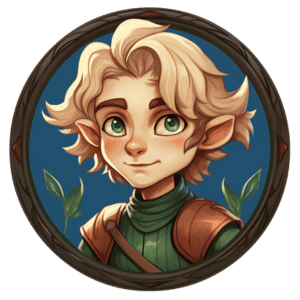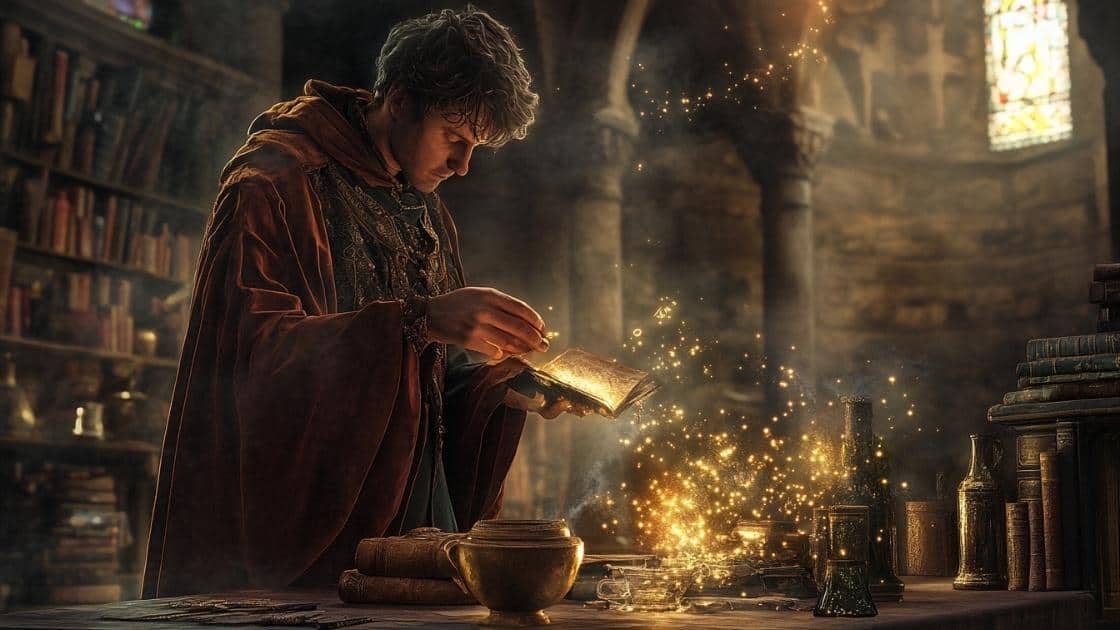Crafting the perfect magic system can feel like stepping into an endless library filled with spellbook, each more complex than the last. But what truly makes a magic system resonate with readers? Whether you’re writing a sweeping fantasy epic, designing a role-playing game, or sculpting a world for a D&D campaign, magic systems give your world its soul.
This guide is your lantern to illuminate the path. Together, we’ll explore the essence of magic systems, unlock their potential, and learn how to weave them seamlessly into your narratives.
The Heart of a Magic System
A magic system is more than just fancy spells and fireballs—it’s the foundation that makes the fantastical believable. At its core, a magic system is a structured set of rules that defines how supernatural powers operate in your world. It can shape cultures, drive conflicts, and define characters.
A well-crafted magic system is what separates the mundane from the memorable. Take Brandon Sanderson’s “Mistborn” series, where Allomancy—magic derived from ingesting metals—combines complexity, consistency, and originality, captivating readers for years. Or J.K. Rowling’s “Harry Potter,” where wand lore, spell casting, and inherent magical abilities create a vibrant, immersive world.
Curious about your own? Keep reading to uncover the artistry behind magic systems and the tools to craft your own.
Types of Magic Systems
Magic systems often reflect the world and its culture. Each type of system offers distinct opportunities, as well as challenges, to worldbuilders.
1. Elemental Magic
The classic, but evergreen, choice where forces of nature—fire, water, air, and earth—fuel the magic.
- Example: The “Avatar: The Last Airbender” series showcases a world where bending elements shapes characters, societies, and conflicts.
- How to Integrate: Consider giving specific regions or cultures affinities for certain elements. Perhaps one kingdom thrives due to their water-borne mages irrigating deserts, while another wages volcanic war, harnessing searing magma.
2. Ritual Magic
This system leans heavily on ceremonies, chants, and symbols to invoke power. It often adds a layer of mystery to the world.
- Example: Uzumaki in “Naruto” draw their immense chakra through strict, symbolic hand seals.
- Tip: Make rituals culturally relevant. How do ceremonies influence relationships, power balances, or religious beliefs in your world?
3. Alchemical Magic
A blend of science and magic, alchemical systems require formulas, ingredients, or artefacts to perform spells.
- Example: Edward and Alphonse’s dynamic in “Fullmetal Alchemist” explores the law of equivalent exchange, grounding the fantastical in strict rules.
- Rule Creation: Have limitations—are rare ingredients hard to source? Do experiments have unintended consequences?
4. Divine Magic
Magic gifted (or restricted) by gods. This can create power struggles or existential dilemmas.
- Example: Clerics in “Dungeons & Dragons” derive spells as blessings from their deities, but misuse or loss of faith can strip them of powers.
- Balance the Power: Divine magic may seem limitless, but tether it to character actions or moral dilemmas to avoid overpowered entities.
5. Psychic Magic
Mind over matter. Psychic magic systems unlock telepathy, precognition, and telekinesis.
- Example: Xavier’s School in “X-Men” treats psychic powers as tools and challenges, exploring their role in society.
- Depth Tip: Introduce psychological consequences—does reading minds take a toll? Does seeing the future burden rather than benefit?
Each of these frameworks brings its own flavour and opens doors for creative storytelling. But the true strength of a magic system lies in its structure.

Writing Magic: The Ultimate Guide to Mastering Worldbuilding
Unlock the secrets of worldbuilding and storytelling with this ultimate guide. Perfect for writers, creators, and dreamers alike.
View on AmazonCrafting a Magic System That Works
A powerful magic system is not about limitless power—it’s about balancing imagination with restrictions.
The Golden Rule of Magic Systems
Magic must have limits.
Without rules or costs, the stakes vanish, and so does the tension. Balancing strengths and weaknesses ensures readers and players are invested.
Building Boundaries
Ask yourself these questions when forming your system:
- Source: Where does magic originate? Is it drawn from nature, divinity, or a character’s life force?
- Cost: What does magic take? Energy, physical wear, emotional trauma—or perhaps years off the caster’s life?
- Accessibility: Who can wield magic? Is it innate, learned, or bestowed?
- Consequences: How does magic impact the world? Who benefits, and who suffers?
Example of Rules Done Right
Tolkien’s “The Lord of the Rings” demonstrates this impeccably. The One Ring’s ability to turn its wearer invisible is enticing, but the cost—corruption and servitude—renders it as much a curse as a gift.
Incorporating Magic Into the Narrative
Magic shouldn’t be a mere afterthought; it should shape your world and characters.
- Strong Integration: Look at N.K. Jemisin’s “The Broken Earth” trilogy. The seismic powers of orogenes influence not only characters but the societal hierarchy within the narrative.
- Ask the Right Questions:
- How do characters emotionally react to magic’s presence?
- Does magic create natural conflict or solutions?
- Can society or technology progress because of (or despite) magic?
When magic feels essential to the story, it draws your audience deeper into the world.
The Impact of Magic on Society and Beyond
Magic doesn’t exist in a vacuum. Its use alters everything—from politics to family dynamics.
Magic in Society
- Economic Dynamics: If certain rare materials power magic, those who control resources wield financial control.
- Cultural Significance: Is magic integrated into daily life, like “Total Recall” memory implants? Or is it veiled in old folklore, only glimpsed at climactic moments?
Exercises to Explore Magic’s Reach
- Describe how magic impacts three daily activities in your world (e.g., farming, transportation, communication).
- Create a short story about a farmer trading enchanted crops—how does this trade shape community relationships?
Characters Fuelled by Magic
Well-rounded characters interact differently with magic based on their roles. A blacksmith dependent on runes to strengthen weapons faces different trials than a queen struggling to ban deceitful soothsayers. Live in their shoes and channel magic through their stories.
Naming Your Magic System
Nothing hooks an audience more than a memorable name or mnemonic phrase tied to magic.
- Immersive Techniques: Draw inspiration from ancient language roots (e.g., “Chronomancy” for time magic).
- Symbolism: Make names resonate. Is your blood magic ritual called the “Crimson Covenant”? Does your chant summon the “Echo of Suns”?
Consistency matters. Names shape memory and help unify your magical system.
Avoiding Common Pitfalls
Even seasoned writers face challenges while creating magic systems. Here’s how to troubleshoot effectively.
- Overpowered Magic: Ensure limitations counteract fantastical abilities. A healer might sacrifice their eyesight per revival.
- Lack of Originality: Blend systems. What if necromancy wasn’t feared, but used to preserve cultural memories?
- Unexplored Consequences: Look beyond the immediate effects of a spell. How would the prolonged practice of alchemy wreak havoc on air quality?
Reflecting on magic’s realistic effect ensures authenticity.
Empower Your Creativity
Every incredible fantasy or video game world began with one question: “What if?” Now it’s your turn. What if your world defied the laws of nature? How would it impact life, conflict, and resolution?
Take the plunge—design, refine, critique, and optimise your magic system. The enchantment of creation lies in your imagination.
Happy world-building!

Writing Magic: The Ultimate Guide to Mastering Worldbuilding
Unlock the secrets of worldbuilding and storytelling with this ultimate guide. Perfect for writers, creators, and dreamers alike.
View on Amazon
Leo Hambling is the author of Writing Magic, a beginner’s guidebook for creating magic systems. With an MA in Creative Writing from the University of Essex, and 15+ years of experience writing novels, games, and short stories, Leo is an expert in the craft of building worlds.

